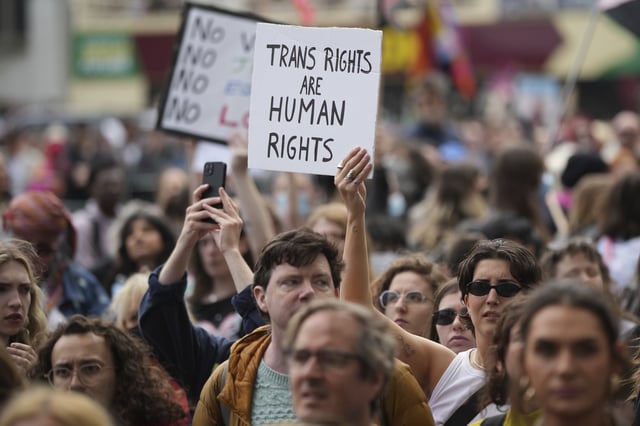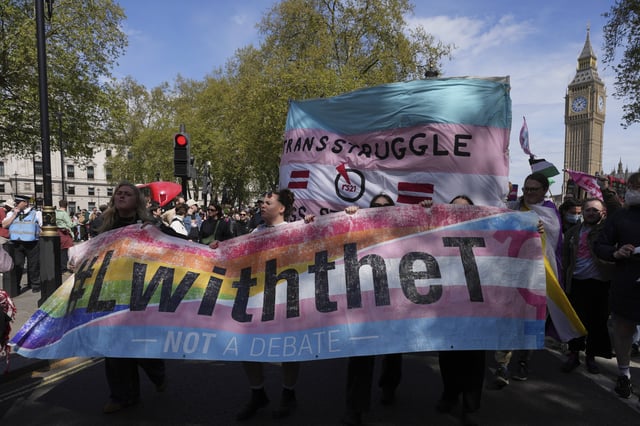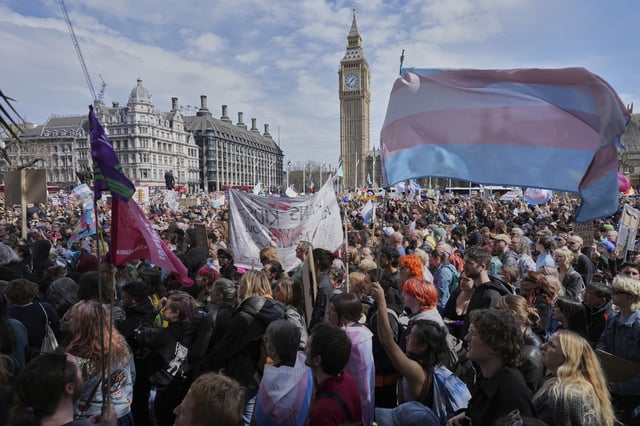Overview
- The UK Supreme Court ruled on April 15, 2025, that 'woman' and 'sex' under the Equality Act 2010 are defined exclusively by biological criteria.
- The decision excludes transgender women with gender recognition certificates from single-sex spaces, including toilets, hospital wards, and sports teams.
- Mass protests erupted across the UK on April 19, with thousands demanding expanded transgender rights under banners of 'trans liberation' and 'trans rights now.'
- The British government welcomed the ruling, stating it provides 'clarity and confidence' for women and service providers, while devolved leaders acknowledged the anguish of affected communities.
- The ruling stems from a 2018 Scottish gender-quota law, with census data showing approximately 116,000 trans individuals in England, Scotland, and Wales and 8,500 gender recognition certificates issued.


